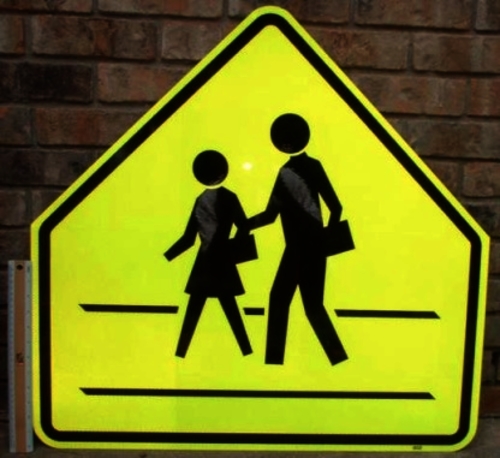A new study of K-12 Christian schools shows that Protestant Christian schools do a better job of developing their students' spiritual formation while Catholic Christian schools do a better job developing their students' intellect. Read the news coverage here.

Christian Post covers Cardus education survey
August 22, 2011

Protestant Schools Focus on Faith; Catholic Schools Focus on Intellect
August 21, 2011

Cardus Releases Largest Ever Study About Christian Education in North America
August 19, 2011

Faith and Reason? The Christian School Dilemma
August 19, 2011

British rioting met with justice and mercy
While looters rage through London and naked cyclists make their pitiable protest for whatever here at home, two words put the entire exercise of protest and riot in London, Vancouver, Toronto, Montreal - wherever - in context: police cautious. Media report that police in London are cautious about using tear gas, water cannons and other strong-arm riot measures. We're shocked, and we should be, by the pictures out of London. The rifts in English society are burning a hole through that city, and those rifts are instructive, no question. But the lessons are not about the last days of London, but about the hard work that needs to be done in Europe, Canada, America and the developed world in the midst of scarcity and recession to build a public project on the foundation of justice and mercy - virtues we need not a moment too soon. From David Cameron we have heard that multiculturalism has failed. From Barack Obama we have heard that stocks are slipping, but we should be OK. Who will be the first world leader to practise the audacity of hope? Canada is finding itself missing Jack Layton sooner rather than later. At least Jack still thought we were up for a fight, for things to believe in. We're a society desperate for idealism. Maybe a drop or two of success: a speech about what is working, what principles we can afford, or - failing that - which ones we will refuse to sacrifice in the face of adversity. If it hasn't been noticed, let's then be the first to say it: things are bad - really bad. We need some principled ballast to get through this political storm. So here are two we still seem to have: justice and mercy. When I hear that police are cautious, I think of justice and mercy. Take a deep breath, pause and compare: police cautious; police accountable. All this, while the Syrians surround the city of Hama, threatening to level like they did in 1982, to blast from the Earth any resistance from its Sunni Muslims. These are not protests driven by looters or graduate students with fairy tale visions of grandeur; these are people protesting a history of brutality and decades of political caprice. Even Russia and Saudi Arabia, hardly poster nations for mercy, are calling on Syria to relent. Yet, here at home, smug academics hiding behind the dogma of cultural equivalence have the temerity to suggest the realities of western violence and injustice are simply more subtle. They need to put down the Marx and teach a few tours in the Congo, or maybe Somalia, and see then if their appreciation for the rule of law doesn't grow a little for a system, broken as it is, that has justice and mercy at its core. After the Vancouver Stanley Cup and Toronto G-8 riots, the most recent in Canadian memory, cases floated out in the media of protesters mishandled, subject to brutality and abuse. Lawsuits were launched. Investigations are ongoing. London will be wracked by more of the same. Any society worth its salt is measured by how it treats its most vulnerable, its most marginalized, its forgotten and its enemies. This isn't always a measuring stick of which we in Canada, or England, or America, can be proud. Sometimes, it shows us to be bigoted; sometimes, greedy and xenophobic. Our systems are far from perfect. Our desires conflict and split us. But justice and mercy are things worth fighting for, or - in the case of London riot police - worth being cautious over. It might be cheaper, more expedient, more convenient to send in the army and turn on the water cannons, load up the rubber bullets and crack down. Syria certainly thinks so. It hasn't bothered with bullets made of rubber. Most countries in the world wouldn't. Ours don't. And while London burns and capricious activists parade the fall of western civilization, it's worth remembering the justice and mercy we have, and why. This isn't the demise of western civilization. This is its hour.
August 14, 2011

In Montreal, pants and bridges are falling down
As Montreal falls down around its residents' heads, there is comfort knowing it is safe to drop your pants and bicycle through downtown at midnight. Motorists forced to use the Ville Marie tunnel for their commute when it reopened Monday told media tales of terror at the prospect of another massive beam collapsing on their cars. Bridges are considered unsafe at any speed. Overpasses mimic asteroids, tossing great chunks of debris from above: "Look out! It's coming right at us!" But insouciance, which only sounds like a French word for idiocy, rolls on. Late Saturday night, it cruised through the heart of Montreal wearing nothing but a superior smile. While I was safely tucked in my bed far away at the time (my staunch belief is nothing good can ever come of being awake after 10 p.m.), press reports advise that 40 to 50 naked souls rode the streets en masse to make the point that, well, no one's quite sure. Perhaps their only point was to show they had something to point. Like everything these days, the nudie wheelabout was organized entirely on Facebook. There is no word whether organizers recognized this as a golden gift of paradox. It's doubtful, however, that they did. No two groups of modern humans are more squinteyed with sanctimony than nudists and cyclists. Plop a bare-buttocked progressive astride the ultimate vehicle for green self-congratulation and you create, on two wheels, a snob so myopic the Hubble telescope couldn't help him see things clearly. Naturally, police passively stood by as public order was violated. What were they to do? Uphold the law? Arrest someone for brandishing a club in public? Not in Montreal, where failure to look the other way is deemed a dereliction of the duty to be insufferably culturally superior. Curiously, the one yelp of agitation following the event was on a blog called anarchist dot org (http: //anarchistnews.org). Its auteur managed simultaneously to participate and slag other participants for their bourgeois blindness. The work is worth quoting at length: "Every garment (and every commodity) is a thread in the most constricting of uniforms, imposed at gunpoint and at shopping centres: CIVILIZATION. "Whether we are naked or in parkas, our bodies remain trapped within the system that issues judgement according to clothing, skin colour, or desire. Whether we are on bikes or in Hummers, the police will enforce the rules of the road: keep to the right, don't torch department stores. As long as the logic of the commodity rules, the power of the welldressed man in the limousine won't be threatened by the naked queer on the tallbike. "We take off our clothing to celebrate the beauty and diversity of our bodies, but what of the bodies we can't see, locked away in cells, or consigned to stitch American Apparel under fluorescent lights in 'not sweatshops'? When will we see the bodies that are actually forbidden? Will we even see each other outside of this carefully controlled space with its set time, its predetermined route, its police escorts? "To begin answering these questions, we have to call into question the entire existing order. We have to stript (sic) away not just the layers that hide our bodies, but the entire apparatus of domination that ensures we'll put our pants back on and go back to work in the morning. "NO PANTS, NO MAS-TERS means WE MUST DESTROY CIVILIZA-TI0N." It would be fish in a barrel to dismiss this as the sophomoric mouth-breathing of a political imbecile. Although it is written in something approaching English sentences, for example, its "logic" is akin to one of those word wheels you spin to pick combinations of nouns and vowels that sound coherent, but are really genuine gibberish. NO BIRDS, NO GAR-BAGE TRUCKS means WE MUST SING BARRY MANILOW SONGS. NO GOLF, NO CONDOMINI-UMS means WE MUST MOW THE LAWN. One could go on. One won't. Yet, behind the nonsense there is a kind of savage genius, and an eerie prescience given what's happening in England, in the phrase, "keep to the right, don't torch department stores." Likewise the sentence "imposed at gunpoint or at shopping centres." They are meaningless at the literal level, of course. Yet our anarchist's analysis ingeniously dispenses with civilized distinctions between differences of degree and differences of kind. In so doing, it presents a mentality prevalent well beyond niche political blogs. It represents the thinking that distinctions no longer matter because they belong to that outmoded habit called order. So the core of a oncegreat city can turn into a nude free-for-all zone while the edges crumble and become impassable. So taking your pants off in public becomes a valid political gesture and obliging motorists to dodge collapsing 25-tonne beams is acceptable political inaction. What matter? All things are just all things. And all things - pants, bridges - fall down. Look out. It's coming right at us.
August 11, 2011

Space shuttles a reminder of America’s more ambitious times
The space shuttle Atlantis rolled to a stop shortly after 6 a.m. on July 21 at the Kennedy Space Center, closing a chapter on one of the most far-reaching superpower confrontations in human history: the cold war space race. That race, and that war, had its origins in the extraordinary technical achievements of the Second World War. The German V-2 rockets that once showered London were transformed into space rockets, as Soviet and American scientists scrambled to be the first humans into outer space. The Soviets won that race, putting Yuri Gagarin into orbit on April 12, 1961. America responded with the famous Apollo program, committing itself to putting a man on the moon. It was President John F. Kennedy's famous speech in September 1962 that said: "We choose to go to the moon in this decade and do the other things, not because they are easy, but because they are hard, because that goal will service to organize and measure the best of our energies and skills." A month later, the world would watch in anxious terror as Soviet cargo ships loaded with nuclear weapons turned back at an American naval blockade of Cuba. The space race was as much about international politics, about the control and mastery of space, a nuclear and technological confrontation with the Soviet Union, as it was about exploration and mystery. It was about an audacious commitment of public will to a never-before dreamed human achievement, conceived over an apocalyptic confrontation of nuclear powers. But when the first pictures floated back from the early Apollo missions, it was the Earth, in all its fragility and mystery, that snuck through the sabrerattling. They say we went to the moon, but we discovered Earth. The decommissioning of Atlantis, and of the space shuttle, its service and its legacy, is only faintly heard today over famine in Somalia, economic meltdown in Europe, and midnight deficit deals in the United States itself. But the last flight of the shuttle is a metaphor for another time, when the U.S. galvanized its public, its genius and its power around that singular goal of space flight. And then, its men were walking on the moon. We went for glory and conquest, but in space, we found humility. We went with bravado and quarrel, but became small and fragile. There are plans for Orion, a conical ship destined for the moon, asteroids and Mars. The rocket, mind you, is an entirely unknown quantity. Plans are supposed to emerge by the end of the summer. In the interim, NASA will rely on Russia to supply the International Space Station, and two commercial companies - the Space Exploration Technologies Corp. of Hawthorne, Calif., and the Orbital Sciences Corp. of Dulles, Va. - to begin cargo flights next year. The invitation is out to the private sector to provide space transport services. In what can't fail to seem iconic in these times of fiscal and moral austerity, private companies will pick up the burden of resupply and innovation. Exploring space might be a fading luxury for public America, a sagging superpower swamped with debt and indecision. Mystery seems a virtue for the solvent. Yet, surely it is a eulogy worth writing; that the nation that split the atom and walked on the moon is buckling under over-consumption, internal fracture and indebtedness. Finally, it may have to abandon the public transcendence of space itself: America's lesser demons robbing its treasury and sapping its will. Names and sacrifices like Challenger and Columbia fit for another time. For Atlantis, NASA will now begin the work of transforming it into a museum piece. It will be mounted nearby at Kennedy's visitor centre. One can't help but wonder if its broken hull will serve future generations with nostalgia for a time when the boundless audacity of public power galvanized one of the greatest nations in history around a public search for meaning, and origin, and transcendence. Would that our public - and our politics - be worthy of such a project again.
July 31, 2011

Don’t blame religion for Anders Breivik
My stomach churned when I heard the first reports regarding the terror in Norway. As a confessing Christian, it erupted again when police said the perpetrator, Anders Behring Breivik, was a "Christian fundamentalist." Mine was the adrenalin that evil inspires. Mr. Breivik's faith claim is destroyed by his own words. He admits that his Christianity is a "cultural, social identity and moral platform" but that he doesn't "have a personal relationship with Jesus Christ and God." A faith in Jesus Christ as the substitute for sin and a relationship with him is to Christianity what breathing is to life. Take it away and you have neither. So it's easy enough to dismiss Mr. Breivik's faith claim and condemn these terror acts for what they are: evil, horrific and cruel-hearted. I pray that those who suffer indescribable loss may be comforted. But still there's no escaping his claim to cultural Christendom, and some will use it as evidence that religion is inherently dangerous. Such logic proceeds from the premise that humans are by nature good and that it's religion that corrupts: Were it not for Islam, the 9/11 terrorists would have been law-abiding citizens and Anders Breivik would be a Boy Scout leader. And yet we all know we're far less than perfect. Children don't have to be taught to do bad things; they need instruction on what is good and what is evil and, no matter how cheerful their nature, they need to be loved in order to empathize. There's less societal unanimity on how we deal with the internal realities of evil or even the names we give to it. Some think it not so serious and simply part of life. Others struggle at a much more existential level. Religion is something people turn to in order to address life's big questions “the ones we ask ourselves when it's dark and we're alone. For most, faith provides answers. For others “an exceptional few“ it's simply a tool to justify their evil intent. But exceptions don't make the rules: Bad things that happen in the name of religion can't define or devalue it any more than society's endless series of domestic disputes define love. Nor did Charles Manson or John Hinckley define the Beatles or Jodie Foster, even though such connections fatuously meet our need to find reason in the unreasonable. Any fair-minded person will conclude that the overall contribution of religion to public life is positive. It generally motivates people to do good things and to contribute to society. As it did in Norway on Sunday, its institutions comfort the grieving and act as incubators of commonly held social virtues such as mercy, compassion, patience and forgiveness and try to answer the questions empiricism can't such as "What is the purpose of life?" and "How do I deal with evil?" People of faith don't agree as to how these questions are best answered or even on what it means to be a human being. There are many religions and, on many issues, they contradict each other. But there is unanimity on the idea that life is precious and that the taking of innocent human life is evil. The crimes of which Anders Breivik stands accused don't show how religion can inspire evil. Quite the contrary: They are proof positive that a Christ-less Christianity is a cultural construct that can't bring the depth of relationship required to prevent the horrors that evil inspires. It doesn't show how faith makes us evil - it shows only why we so badly need to be inspired by the social virtues propagated by its institutions.
July 28, 2011

Brunch and Foolishness
The word brunch is utterly stupid, and New Yorkers self-consciously eschew stupid things, as if it’s their contribution to civilization. But if you ever move to New York, you’ll be standing at a party and a slightly tipsy someone will forcefully declare to you, bright-eyed, waving a rum and coke, that “New Yorkers love brunch.†You’ll think about how pretentious that statement is, and then you’ll start to notice that pretty much every restaurant in Manhattan and Brooklyn serves the same menu from ten o’clock to two o’clock, sometimes four, on weekends. The magical brunching hour. And soon you, too, will become a New Yorker, and you, too, will love brunch, with its unembarrassed menus of upscale hangover cures (ever-more-inventive upgrades on the spicy Bloody Mary, fluffy feta-stuffed omelets, french toast stuffed with mascarpone, big grilled cheese sandwiches with Parma ham) and its air of relaxation. For what could be more indulgent, more civilized, more lap-of-luxury than lazing at a sidewalk table with your sunglasses and your comfortably chic sweater dress and four friends laughing nearby, or your husband and a book and a bottomless cup of passably good coffee? Of course I knew the word brunch before I moved into Greenwich Village, the languid seat of haute civilization, but I grew up in the suburbs and then a plot of land out in the country, daughter of the working class, and we didn’t do brunch, except maybe on Christmas Day. We did breakfast (eggs and toast) and lunch (soup and grilled cheese) and dinner (chicken and potatoes), and sometimes a bedtime snack (popcorn). Brunch was a funny word for breakfast when you slept in really late. Or something at Grandma’s, in pajamas, after sleeping over with cousins: chocolate chip pancakes, sausages, hot chocolate. I can’t remember my first brunch that first summer in New York, but by early fall I’d fallen in with a rotating group of acquaintances and a core cast of friends: one with a gorgeous apartment and the rare, coveted commodity of a table to eat at, one who worked in commercial realty and had inexplicably been to cooking school, a student at a design school nearby, a filmmaker, and, somehow, me. The glorious lazy times we spent around that table, midday, with pear tarts, and roasted chickens and whole fishes, and buckwheat pancakes, and bottles of wine and good bread. We were grown-ups, all on equal footing despite the spread of age and education and experience between us. We could leave the scraps on the table and go down the street to Film Forum for a matinee. We could boldly start our meal with fresh orange-scented chocolate chip cookies, or watch through the north-facing wall of windows as the sun crossed from east to west, past the Chrysler Tower, behind the Empire State Building, and through the West Side’s trees. We let the day fade away, together, in glorious companionship, confident nothing could change our world. Ridiculous, really: a year later we’d all be headed in separate directions, one to Seattle to marry and settle down, one to DC to save other corners of the world, one home for the summer once classes ended, and then the two of us, just the filmmaker and me, moving from Manhattan to Brooklyn to make a life for ourselves together.  * * *  Planning our wedding reception, we chose brunch, with french toast and scrambled eggs and biscuits and gravy (a nod to my in-laws’ roots in backwoods Virginia) and apple crisp (a nod to my roots in Yankee country) and good coffee. “Everyone loves brunch,†we said by way of explanation. Then Dad died, very suddenly, too soon, and we canceled the brunch. Sometimes I still think about all those eggs and the bread and the gallons of syrup, and I imagine that brunch and what it would have been like. If it would have been any good. If I, too clumsy to wear white, would have dripped syrup on my dress. If we had invited someone who was gluten intolerant and forgotten to put something wheat-free on the menu. If people would have gone away pleased. What we did, in the end, was transform the sandwich platters my in-laws had ordered for our rehearsal dinner into our wedding meal, laid out under a tent in the backyard where we married a couple days after we’d planned, and concluded it with cheesecakes. An awkward meal to celebrate the beginning of a marriage, which is, in turn, always a foolish proposition, no matter how you look at it. Check any New York restaurant’s weekend menu: lunch food is brunch, too.  * * *  Nobody seems to know where the foolish word came from—a portmanteau of breakfast and lunch, obviously, but we don’t say lupper or dunch. Someone claims a reporter for the New York Morning Sun coined it in the early twentieth century as a way to describe the way a morning newspaper man ate: frenzied, I suppose, too busy to eat breakfast. I gave up breakfast a long time ago, when I realized it just makes me hungry for lunch hours too early, but I think that portmanteau-inventing reporter and I, teaching college freshmen to wrangle words in the early mornings, are kindred souls. My students note on evaluations that I become more animated by the bottom of my coffee cup, and my midday classes pepper their evaluations with comments about my snacking choices. I gather their comments at the end of the semester and spend a happy hour laughing my way through them, seeing the shape of my semester through their eyes. This job of mine is a silly undertaking. It pays very little and requires too much work and more than a bit of hand-wringing, and it asks me to invest into kids who will sometimes break my heart and sometimes make me love them, but while they think college goes on forever, I know they’ll be gone in a few years anyhow. Like the newspaper man, I only eat brunch anymore, and sometimes linner, or maybe just a late-night snack.  * * *  Wall Street melted down while I stood in a pizza joint late one night on the Upper East Side with my husband, eating a slice and listening to the radio. We’d been at the Ninety-Second Street Y for a celebration of Maurice Sendak’s eightieth birthday, the sort of star-studded affair you start to take for granted here, and when we stopped to eat, we realized that Lehman Brothers had basically disappeared while we were inside. My husband was working in film and I had just quit my full-time job to work for two nonprofits and I was suddenly terrified that I’d be laid off and we’d be destitute, and as I choked my way through the rest of the pizza and then into the next two months, I worried endlessly. I had done a very silly thing, quitting a good job that paid my graduate school tuition to chase a dream. I was choosing to play with ideas and artists over the steady work I was trained to do. But for now, we had an income. Our friends: not so lucky. Each week, more became unemployed or underemployed. Sitting one day in church, praying to know how to help, I realized that there was at least one thing I could do: I could make a meal and invite everyone we knew. At least they’d get a square meal. The first month, a dozen people showed up. The next month, fifteen. A year later, the group had grown so large we could hardly cram everyone into our five hundred square feet of studio apartment; friends sat on the chairs and the edge of the bed and spilled onto the floors and into the hallway. Sheer idiocy, when you think about it. Figuring out how to feed a group of an unpredictable size requires time I don’t have, skills I never acquired, and a couple of extra pots and burners.  * * *  Our church meets at eleven in the morning, and our liturgy positions the Eucharist near the end, so each week we serve the bread and wine around twelve fifteen. I rarely eat before the service, and I am hungry by then, and I frequently remember Paul’s admonition to the Corinthians that folks ought not to partake in the most sacred of tables seeking to fill their stomachs. But the bite of pita bread and gulp of wine isn’t stomach filling. And it leaves me thinking—always, and often so soon it reminds me of my mortality—of brunch: both what we’ll have when the service concludes, and that this thing I do, this sacred meal in which I partake each week, like brunch, looks profoundly foolish from two paces away. I watch as people line up to partake, and I know I have little in common with these people, and they have little in common with me. We’d never meet if we never came within these walls. The meal we’re about to share is not good: inexpensive wine, semi-stale pita from the corner grocery. And yet we return to it every week, in the middle of the day, on a Sunday, when the rest of the city sits at sidewalk cafes. We line up in celebration and solemnity and tell each other that this is Christ’s body, broken for you; this is Christ’s blood, shed for you, and we know we’re a bit mad. But two paces in, standing to receive this unlikely meal with this unlikely family, the foolishness is sweeter than whatever meatball sliders or panini or flapjacks await me, sweeter than the coffee I need, sweet enough to keep me from pushing away what looks foolish to the wondering world.
July 13, 2011
